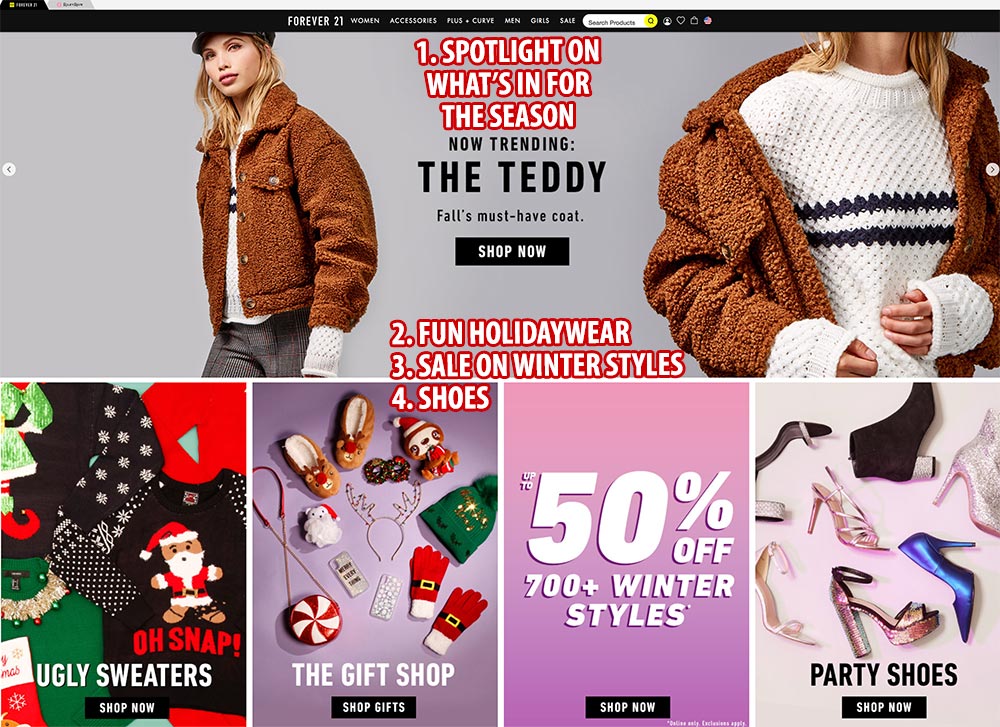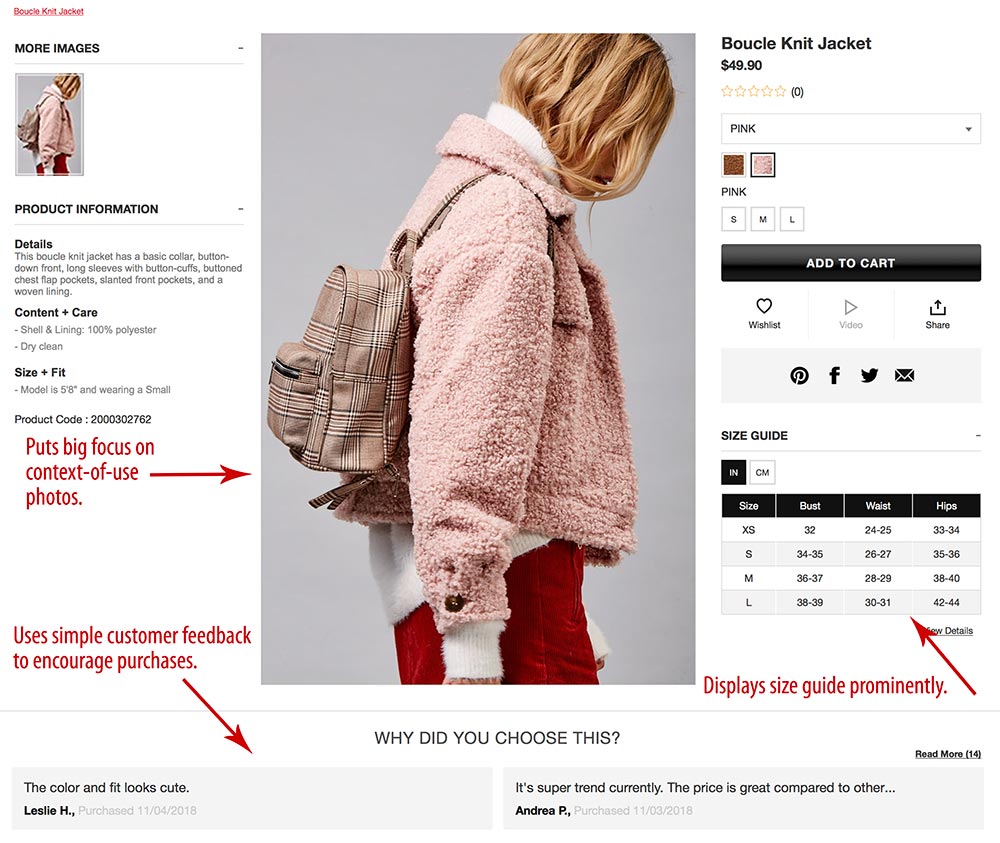When it comes to increasing conversions of an online store, big retailers have money and brand recognition. Smaller ecommerce sites have to focus on more down-to-earth tactics.
Here are five ways to improve on-site conversions without breaking the bank.
5 Simple Conversion Boosters
Use targeted content. Not all online stores look, feel, and function the same. Catering to your audience ensures a lower bounce rate and more interest in what you have to offer. For example, Forever 21 caters to millennials. The company’s home page focuses on modern millennial fashion with seasonal trends, sales, and shoes.

Forever 21’s home page focuses on what matters to its millennial customer base.
Forever 21’s site is image-rich. Even product pages focus more on imagery as a selling tool. Other key features include “add to wishlist,” social sharing, size guide, and customer feedback about the product.

Forever 21’s product page focuses on images. It also includes a sizing chart and customer feedback.
Make buying a snap. A stellar checkout doesn’t just load quickly. It asks for minimal information and lets shoppers use the payment methods they want. The only information merchants need to ship an order is the customer name and address. Additional fields just add to the time and energy it takes to get to the final submit button.
By accepting several forms of payment, including mobile payments, you increase chances of conversion. Not everyone is comfortable with entering a credit card number, and mobile payment apps speed up the process. (We’ve addressed mobile payment options at “12 Innovative Mobile Payment Apps.”)
Instill trust. Security badges, awards, affiliations, testimonials, and customer reviews. These are key trust-building ingredients. Just as our mothers relied on products bearing the Good Housekeeping seal (which, incidentally, is still helpful), today’s shoppers also rely on fellow consumers and stamps of approval.
Be responsive. You can close sales by being available for live chat and by quickly replying to emails, social messages, and phone calls. By responding to reviews and answering questions, merchants demonstrate their concern to shoppers. If your shopping cart doesn’t include a customer reviews feature, consider using a commenting system. Some are free, and a third-party server handles the load.
Let them help each other. One of Amazon’s most powerful sales features is “Questions & Answers.” It allows people to ask anything about a product and get replies from fellow shoppers. This feature goes beyond customer reviews and customer service. It is often used to clarify technical specs and product usage, and to determine if an item will work for a unique situation. This, in turn, can inspire even more purchases.

Amazon’s “Questions & Answers” let shopper help each other. It’s a powerful sales-closing tactic.
If your shopping cart doesn’t include a questions-and-answers feature, embed a third-party commenting system (such as Disqus).
Monitor the Q&A section to remove abusive comments and offensive words or terms. Boost your customer service reputation by replying to questions that go unanswered.
The End Goal
In short, to improve on-site conversions, cater to your current and potential customers. By speaking their language, not wasting their time, and giving them the ability to help themselves quickly, you can bypass all the downfalls of online shopping and get to the end goal: happy customers and increased sales.




